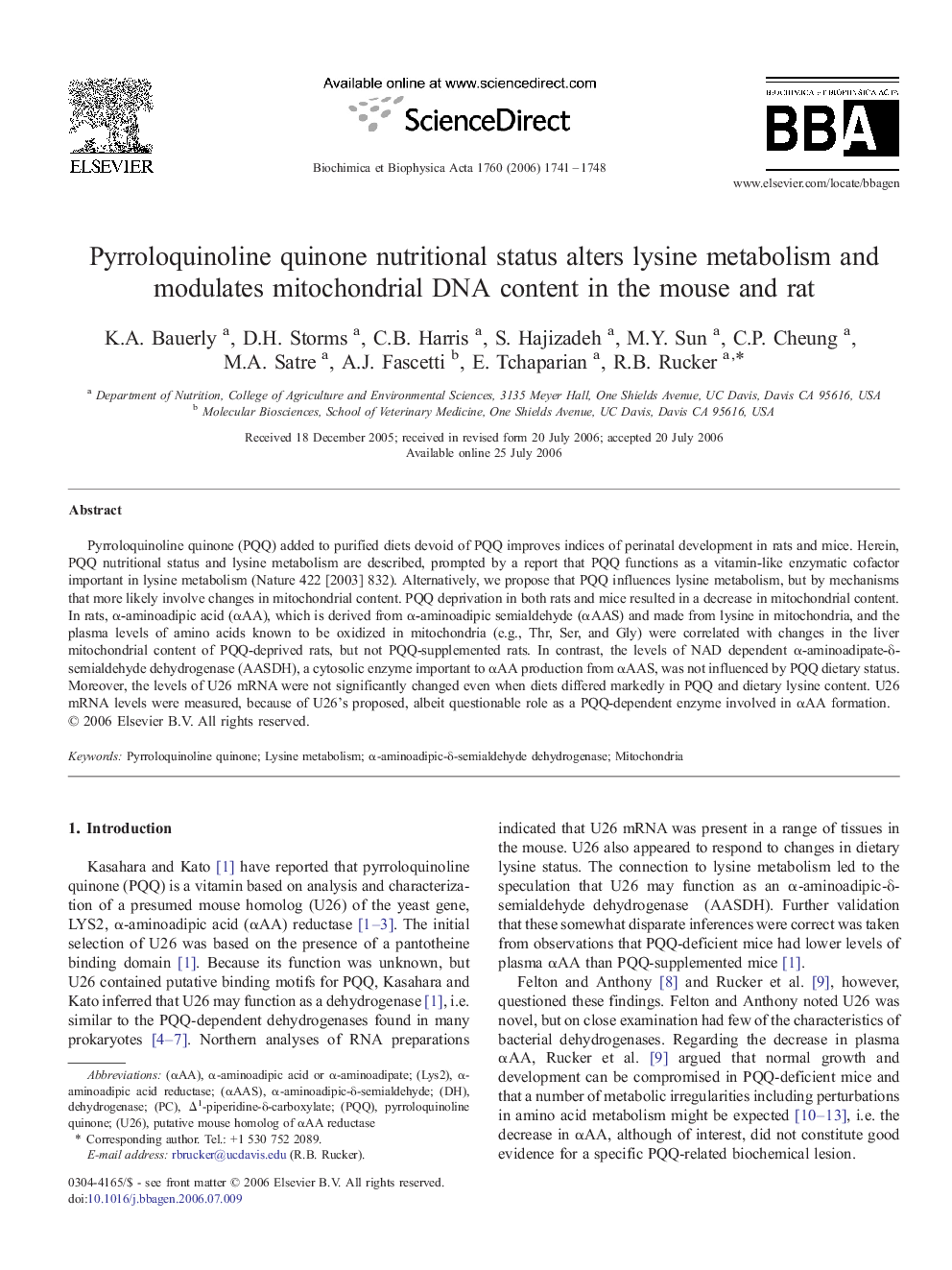| کد مقاله | کد نشریه | سال انتشار | مقاله انگلیسی | نسخه تمام متن |
|---|---|---|---|---|
| 1948715 | 1054707 | 2006 | 8 صفحه PDF | دانلود رایگان |

Pyrroloquinoline quinone (PQQ) added to purified diets devoid of PQQ improves indices of perinatal development in rats and mice. Herein, PQQ nutritional status and lysine metabolism are described, prompted by a report that PQQ functions as a vitamin-like enzymatic cofactor important in lysine metabolism (Nature 422 [2003] 832). Alternatively, we propose that PQQ influences lysine metabolism, but by mechanisms that more likely involve changes in mitochondrial content. PQQ deprivation in both rats and mice resulted in a decrease in mitochondrial content. In rats, α-aminoadipic acid (αAA), which is derived from α-aminoadipic semialdehyde (αAAS) and made from lysine in mitochondria, and the plasma levels of amino acids known to be oxidized in mitochondria (e.g., Thr, Ser, and Gly) were correlated with changes in the liver mitochondrial content of PQQ-deprived rats, but not PQQ-supplemented rats. In contrast, the levels of NAD dependent α-aminoadipate-δ-semialdehyde dehydrogenase (AASDH), a cytosolic enzyme important to αAA production from αAAS, was not influenced by PQQ dietary status. Moreover, the levels of U26 mRNA were not significantly changed even when diets differed markedly in PQQ and dietary lysine content. U26 mRNA levels were measured, because of U26's proposed, albeit questionable role as a PQQ-dependent enzyme involved in αAA formation.
Journal: Biochimica et Biophysica Acta (BBA) - General Subjects - Volume 1760, Issue 11, November 2006, Pages 1741–1748